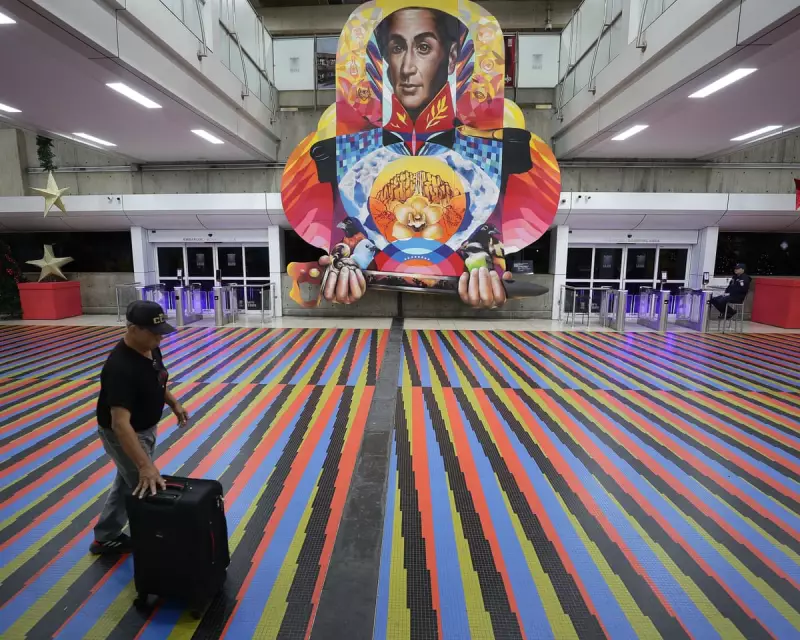
Venezuela Escalates Aviation Dispute with Widespread Airline Ban
Venezuela has taken drastic action against six international airlines, revoking their operational permits in a dramatic escalation of tensions with the United States. The country's civil aviation authority announced the decision late on Wednesday, targeting carriers from Europe and Latin America.
Airlines Accused of 'State Terrorism'
The Venezuelan government has accused the affected airlines of joining actions of state terrorism promoted by the United States government. This extraordinary allegation comes after the carriers suspended flights to Venezuela following a security warning issued by the US Federal Aviation Administration (FAA).
The banned airlines include some of the world's most prominent carriers:
- Iberia of Spain
- Tap Air Portugal
- Avianca of Colombia
- Latam Airlines (operating in Chile and Brazil)
- Gol Linhas Aéreas of Brazil
- Turkish Airlines
US Warning Sparks Aviation Crisis
The crisis began last week when the FAA warned airlines of a potentially hazardous situation when flying over Venezuelan airspace. The American aviation authority cited a worsening security situation and heightened military activity in or around the country as reasons for the alert.
Venezuela has strongly rejected the FAA's warning, asserting that the American agency has no jurisdiction over its sovereign airspace. This dispute occurs against the backdrop of the United States deploying its largest military presence to the Caribbean in decades.
The US government claims this military buildup aims to combat the role of Venezuelan President Nicolás Maduro in supplying illegal drugs that have killed Americans. Maduro has denied these accusations and maintains that Donald Trump is actively seeking to remove him from power.
International Reaction and Consequences
The Portuguese foreign affairs minister, Paulo Rangel, described Venezuela's decision as totally disproportionate on Thursday. He revealed that Portugal had attempted through its embassy in Caracas to persuade Venezuelan authorities to reinstate operating rights for Tap Air Portugal.
Rangel emphasised that Portugal had no intention of cancelling routes to Venezuela and only suspended flights for security reasons. This position reflects the difficult situation facing airlines caught between security concerns and political pressures.
The International Air Transport Association confirmed that Venezuelan authorities had given international airlines a 48-hour deadline to resume flights or risk losing their rights to fly to the country. Despite this ultimatum, several international airlines continued to cancel flights to Venezuela, choosing to ignore the deadline.
Iberia expressed its desire to restart Venezuelan operations as soon as full safety conditions could be guaranteed. Meanwhile, Avianca announced its intention to reschedule cancelled flights to Caracas for 5 December, though the company declined to comment on the restrictions imposed by Venezuela.
Not all airlines that suspended flights faced bans. Both Air Europa and Plus Ultra maintained their operational permits despite flight suspensions. The international airline Copa and its low-cost subsidiary Wingo continue to operate in Venezuela, alongside domestic airlines serving routes to Colombia, Panama and Curaçao.
This aviation dispute represents another chapter in the deteriorating relations between Venezuela and the United States, with international travellers and airlines becoming unintended casualties in the escalating geopolitical confrontation.





